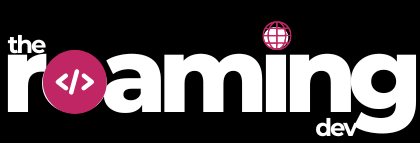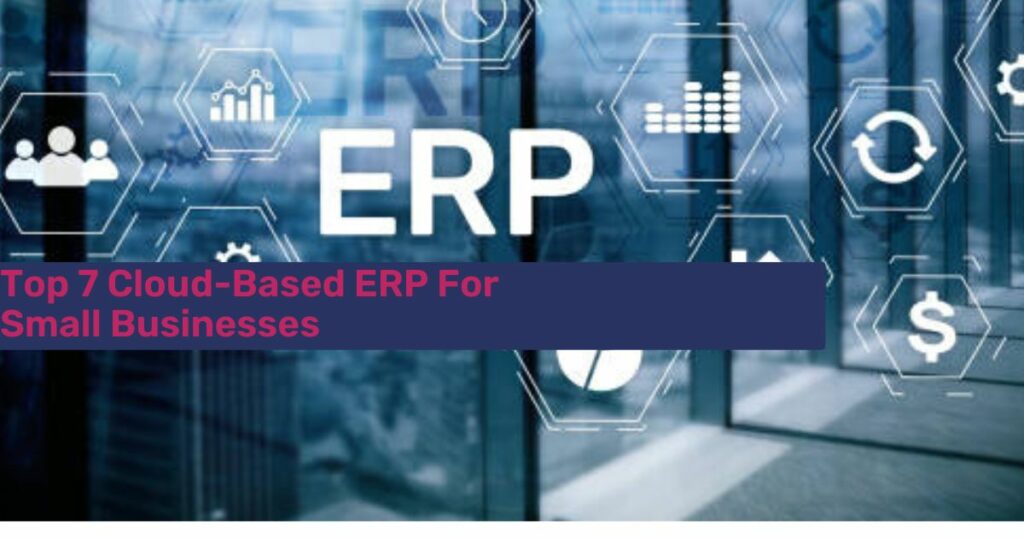In this article, we compiled a list of the top 7 cloud-based ERPs for small businesses. And if ERP solutions sound new to you, check out these basics first.
Managing multiple software applications and platforms for your business is challenging. Thankfully, ERP solutions can help reduce this hassle by combining sales, inventory, finance, project, and customer relations management into a single platform for easier control.
Unfortunately, there is a general assumption that ERP is designed for large enterprises, which is different. In this era of cloud computing, there are several cloud-based ERPs for small businesses.
The only challenge you might face is choosing the right ERP solution for your business, given the sheer number of options available.
But don’t worry. That is why we compiled this list of the top seven cloud-based ERPs for small businesses. And if ERP solutions sound new to you, check out these basics first.
What Is an ERP Solution?
Businesses often coordinate different processes, functions, departments, and divisions. If they were to have software for each, then it would be a nightmare to manage and share data among all the applications.
This is where enterprise resource planning (ERP) comes in to streamline processes from a single point. This cost-effective software allows businesses to plan and run their daily operations.
It facilitates the flow of transaction information from different sources to a centralized point. This solution can manage ongoing business processes such as sales, marketing, human resources, accounting and finance, administration, and data security.
The first version of ERP software was developed in 1992 by software engineers from IBM. They were looking to refine and automate their workflows.
Thankfully, it has become mainstream, such that even small businesses can benefit from the efficiency and convenience of ERP solutions.
Cloud ERP empowers small companies with the technical challenge of managing an on-site ERP system to improve their business operations.
Cloud-based ERP for small businesses helps organizations merge their business processes onto a single platform instead of running an app for each area of operation.
These solutions also eliminate information silos, enhancing communication between departments and divisions.
Cloud ERP solutions are becoming the favorite choice for most small and large organizations because they offer lower startup costs and are easier to deploy and manage than on-premise ERP systems.
As you will learn later, businesses typically pay a monthly or annual subscription fee, which includes software maintenance and updates.
Top ERP Cloud Based For Small Businesses
The best cloud-based ERP for small businesses enables you to share data across your enterprise, make your operation more efficient, your workers more productive, and your reporting more accurate.
The best thing about most cloud-based ERPs for small businesses is that they are affordable and customizable.
You will also note that most of the solutions we recommend offer premium features, including:
- Financial management
- Inventory and warehouse management
- Sales management
- Order management
- Material requirements planning
- Project management
- Customer relations management
- Human resource management
Depending on their needs, small businesses can choose any combination of these modules. We have picked for you cloud-based ERP solutions that offer comprehensive modules.
We also considered their price and scalability. Now, let us look at each one of them.
1. Microsoft Dynamics 365 Business Central
If you want a unified solution for managing finances, sales, operations, and customer service, then Dynamics 365 would be ideal.
This platform has excellent features, including sales and purchasing, financial, customer relationship, project, and inventory management.
Business Central, therefore, offers a complete solution to simplify and streamline business operations. One of its outstanding qualities is its scalability.
This flexibility enables small business owners to choose what they want at any given stage in their business. The good thing is that you can access everything online since it is a cloud-based platform.
Key Features
- Highly scalable and customizable. You can install various extensions from the Microsoft Marketplace to tailor the system to suit your needs.
- Cross-device compatibility, meaning you can access the EPR platform from your mobile and desktop devices.
Pricing
- The starting price is $70 for each user per month.
2. Oracle NetSuite
NetSuite is another cloud-based ERP platform offering many high-quality finance and customer relations management features.
With this ERP, you can dive deep into order management, inventory management, e-commerce, and CRM capabilities.
We also like it because of its scalability and customizable interface. Generally, NetSuite is ideal for small and growing businesses looking for comprehensive and affordable business automation.
One of its outstanding benefits is its ability to improve efficiency and streamline business processes. By offering a centralized platform for coordinating all business activities.
NetSuite can help you eliminate manual processes, thus saving time, improving productivity, and reducing errors.
Key Features
- Offers detailed financial reporting tools to help you make informed decisions.
- Has a supply chain management dashboard
Pricing
- NetSuite doesn’t display pricing details on its website.
3. SAP Business One
This cloud-based ERP for small businesses offers a comprehensive set of tools to manage all aspects of your business, such as inventory management, manufacturing, financial management, project management, purchasing and sales, and customer relations management.
Another impressive thing about SAP Business One is that it is more customizable and flexible than some ERP solutions. So you can configure it to meet your specific needs.
In addition to this, the software offers real-time reporting, allowing you to make fast, informed decisions.
Key Features
- It integrates seamlessly with Microsoft Teams.
- It has a self-service HR portal that lets employees manage their personal stuff.
Pricing
- The cost varies depending on the plan you choose. On the lower level, a single user pays $19 per month. A top-tier package costs over $1,600 per month.
4. Sage Intacct
Another cloud-based ERP for small businesses is Sage Intacct. While this application is natively designed to address financial accounting requirements.
It also automates processes, provides real-time information, and simplifies business processes. Most businesses love it because they can customize and align it to their organization’s workflow.
Another likable attribute of Sage Intacct is that it integrates with other applications such as marketing automation, CRM, and e-commerce.
Key Features
- Interactive data visualization
- Rich financial planning dashboard
Pricing
- Sage does not disclose pricing information on its website, but it can send it to you if you request it from their salespeople.
5. Odoo ERP
This ERP platform automates several tasks, provides real-time information, and simplifies complex business processes.
The good thing about this ERP solution is that it is highly customizable, so you can tailor it to match your business operation model.
On top of this, it integrates seamlessly with other applications like e-commerce, CRMs, and marketing automation software.
We also liked Odoo ERP’s intuitive interface and affordable pricing, making it ideal for small businesses.
Key Features
- It offers procurement, logistics, and risk management tools.
- Integrate seamlessly with project management, CRM, etc.
Pricing
- The Leaning Partner package costs $390 annually, while the Official Partner package starts at $1,950 annually.
6. Acumatica
Acumatica is a cloud-based ERP solution that provides the necessary modules for small, growing, and medium-sized businesses.
They empower these organizations to streamline operations amid rapid changes in the operating environment.
It also supports your organization’s flexibility, enabling you to thrive in the digital economy. Specifically, this ERP platform supports mobile setup and telework with robust tools, including project accounting, financial management, payroll, CRM, and accounting.
Key Features
- It has a mobile field service dashboard that offers details about fieldwork directly on your Android and iOS app.
- Offer real-time business insights.
Pricing
- This cloud-based ERP platform offers custom pricing based on the modules you use.
7. IFS Application
IFS provides small businesses with cloud and on-premise ERP solutions. It also offers excellent customizability, meaning users can create data models and workflows that suit their operation model.
Key Features
- It has a material and resource tracker to keep track of materials used.
- It comes with a talent management platform.
Pricing
- This ERP system doesn’t provide pricing information on its website.
Frequently Asked Questions (FAQs)
When selecting the best ERP solution for your small business, you must consider essential factors such as supply chain management, project accounting, small business management, professional services, and business intelligence.
Generally, it would help if you looked for a system that matches your working model and integrates seamlessly with your existing applications and processes.
As you might have noticed above, ERP pricing may differ significantly depending on several cost factors, such as implementation fees, add-on modules, the number of users, employee onboarding, and maintenance.
Some packages will cost as little as $20 per user per month, while others will cost more than $5,000. On average, expect to spend between $25,000 and $150,000 over the course of owning an ERP solution for small businesses.
Cloud ERP solutions can support your business in many ways. Some benefits of implementing an ERP system include facilitating information sharing, reducing operating costs, reducing time spent on administrative tasks, and providing insightful reports to help you make informed decisions.
Additionally, a cloud-based ERP solution can streamline operations, improve customer satisfaction, and give a better view of financial flow.
There are several areas where a cloud-based ERP solution will offer much value to your business. You need to identify specific processes or functions that you want to increase efficiency and lower long-term costs.
After that, consider the system’s long-term savings on software, hardware, or workload costs and ensure the benefits outweigh the investment cost.
Verdict
Just because you have a growing business does not mean you will miss out on the robust tools that medium and large companies use.
The seven cloud-based ERP solutions discussed above indicate that any business can access top features to streamline its processes.
Microsoft Dynamics 365 leads the suite in simplifying complex processes, while Oracle NetSuite is an excellent choice because of its powerful automation capabilities.
We have narrowed our choices to only seven, so you won’t have to spend time and money sifting through multiple ERP options.
But just like any other tool, you must do your homework before investing in the best cloud-based ERP for small businesses.
Related Posts: 5 Best Cloud-Based ERPs For Small Businesses in 2023



